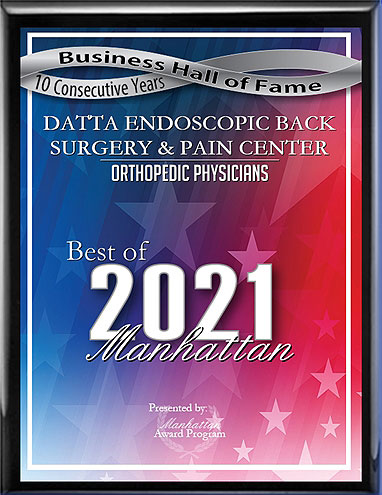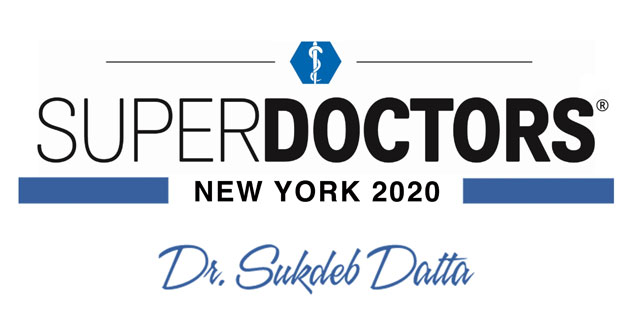Back pain is one of the most common reasons for seeing a medical doctor. Because it is so common, some people may be unsure as to whether their pain may indicate an underlying condition, warranting a visit to the doctor. Being aware of the symptoms of herniated discs, as well as general guidelines for when to contact your physician about pain symptoms, can help you make the call.
Symptoms
In general, if you experience symptoms for longer than two weeks, you should see your physician. If you are experiencing severe pain or other warning signs, you may want to make an appointment sooner. A herniated disc may cause one or more of the following symptoms:
The spinal cord serves as an "information highway" for the body. Herniated discs interrupt the flow of information along the highway, causing your body to perceive sensations differently than it would otherwise. If the disc presses against nerves which transmit pain information, the result will be pain; if it presses against nerves which transmit information about other sensations, the result will be numbness or tingling; if it affects nerves which transmit directions to perform voluntary movements, the result will be muscle weakness.
There is no sure-fire way to distinguish a herniated disc from other spine conditions barring further diagnostic testing. Most conditions which cause back pain do so in the same way as herniated discs - by pressing on the nerve roots and spinal cord. Diagnostic testing, such as MRI, can distinguish whether the pain is caused by a herniated disc, bulging disc, bone spur, stenosis, or another condition.
Some back pain is cause for concern. If you experience severe pain in the upper back, you should see a physician; while it may be a symptom of a spine problem, some heart conditions also manifest in back pain. In addition, if you experience pain accompanied by signs of infection, you should see a physician. Whatever your symptoms, you physician will perform diagnostic tests to rule out more serious underlying causes.
Causes
The intervertebral discs have been compared to jelly donuts: they have a soft inner center, surrounded by a tougher outer ring. A herniated disc occurs when part of the outer portion ruptures, allowing the inner portion to push out of the disc. In many cases, no problems occur as a result of this; some patients have no idea that they have a herniated disc. However, if the disc pushes against the spinal cord or nerve roots, symptoms - sometimes severe - may occur.
A herniated disc may develop slowly as a person ages, or in one single instance of injury. Herniated discs are a common workplace injury, occurring when improper lifting technique is used. They may also occur when weightlifting, rowing, or performing other high-intensity sports which require movement of the back. If you experience pain or other symptoms after lifting or a workout, let your body rest for a few days, and take over-the-counter pain medication if desired. If symptoms do not resolve, call your physician.
If you have a herniated disc, it may be treated with either conservative treatments or with operations such as laser back surgery. To schedule a consultation today, please call the Datta Endoscopic Back Surgery and Pain Center at 212-430-0312.
Symptoms
In general, if you experience symptoms for longer than two weeks, you should see your physician. If you are experiencing severe pain or other warning signs, you may want to make an appointment sooner. A herniated disc may cause one or more of the following symptoms:
- Pain in the back
- Sciatica
- Pain in the leg, arm, or buttock
- Numbness or tingling in the extremities
- Muscle weakness
The spinal cord serves as an "information highway" for the body. Herniated discs interrupt the flow of information along the highway, causing your body to perceive sensations differently than it would otherwise. If the disc presses against nerves which transmit pain information, the result will be pain; if it presses against nerves which transmit information about other sensations, the result will be numbness or tingling; if it affects nerves which transmit directions to perform voluntary movements, the result will be muscle weakness.
There is no sure-fire way to distinguish a herniated disc from other spine conditions barring further diagnostic testing. Most conditions which cause back pain do so in the same way as herniated discs - by pressing on the nerve roots and spinal cord. Diagnostic testing, such as MRI, can distinguish whether the pain is caused by a herniated disc, bulging disc, bone spur, stenosis, or another condition.
Some back pain is cause for concern. If you experience severe pain in the upper back, you should see a physician; while it may be a symptom of a spine problem, some heart conditions also manifest in back pain. In addition, if you experience pain accompanied by signs of infection, you should see a physician. Whatever your symptoms, you physician will perform diagnostic tests to rule out more serious underlying causes.
Causes
The intervertebral discs have been compared to jelly donuts: they have a soft inner center, surrounded by a tougher outer ring. A herniated disc occurs when part of the outer portion ruptures, allowing the inner portion to push out of the disc. In many cases, no problems occur as a result of this; some patients have no idea that they have a herniated disc. However, if the disc pushes against the spinal cord or nerve roots, symptoms - sometimes severe - may occur.
A herniated disc may develop slowly as a person ages, or in one single instance of injury. Herniated discs are a common workplace injury, occurring when improper lifting technique is used. They may also occur when weightlifting, rowing, or performing other high-intensity sports which require movement of the back. If you experience pain or other symptoms after lifting or a workout, let your body rest for a few days, and take over-the-counter pain medication if desired. If symptoms do not resolve, call your physician.
If you have a herniated disc, it may be treated with either conservative treatments or with operations such as laser back surgery. To schedule a consultation today, please call the Datta Endoscopic Back Surgery and Pain Center at 212-430-0312.






 EDISCSCULPT
EDISCSCULPT



